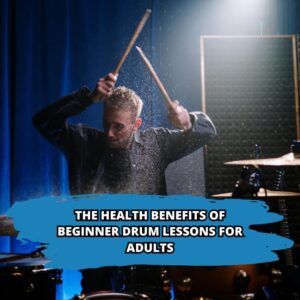
As singers, we all strive to captivate our audience with powerful, clear, and confident performances. A crucial aspect of achieving this goal is mastering vocal projection. In this comprehensive guide, we will explore the importance of vocal projection in singing, the factors influencing it, and practical techniques to improve it. Additionally, we will discuss how to build confidence in singing and provide guidance on overcoming common mistakes and challenges. If anything seems overwhelming or difficult, consider booking a trial lesson with our instructors to see if we might be a good fit for you.
Understanding Vocal Projection
i. Definition of vocal projection
Vocal projection is the ability to effectively and clearly project our voice, ensuring that the sound reaches the audience with power and clarity. When we master vocal projection, our performances become more engaging, allowing us to connect with the audience on a deeper level.
ii. Factors influencing vocal projection
Several factors contribute to successful vocal projection. These factors include:
- Breathing technique
- Resonance and placement
- Articulation and enunciation
By understanding and addressing these factors, we can make significant strides in improving our vocal projection.
Techniques for Improving Vocal Projection
i. Proper breathing
Proper breathing forms the foundation for effective vocal projection. To project our voices powerfully and confidently, we need to employ diaphragmatic breathing, a technique that involves using the diaphragm to control airflow. We can practice this by taking deep, controlled breaths and exhaling slowly.
Breath control exercises are essential for developing diaphragmatic breathing skills. Some examples of breath control exercises include the hissing exercise, in which we take a deep breath and exhale slowly while making a hissing sound, and panting, which involves rapid, shallow breaths.
ii. Developing resonance and placement
Resonance is the amplification and enrichment of our voice as it travels through the vocal tract. To improve resonance and placement, we should focus on feeling the vibrations in the chest, mouth, and head while singing. This awareness helps us make adjustments to optimize the resonance and projection of our voices.
Exercises that target resonance and placement include humming, which allows us to feel the vibrations throughout our vocal tract, and singing on specific vowel sounds, which helps us fine-tune our resonance and placement for different sounds.
iii. Enhancing articulation and enunciation
Clear diction plays a crucial role in effective vocal projection. As singers, we must practice articulating words and phrases distinctly, paying attention to both consonants and vowels. This ensures that our lyrics are easily understood and appreciated by the audience.
Exercises that improve articulation and enunciation include tongue twisters, which challenge our pronunciation and diction, and reciting difficult-to-pronounce words, which helps us become more familiar with challenging sounds and syllables.
Building Confidence in Singing
Confidence is a key component of powerful and effective vocal projection. When we are confident in our abilities, our voices naturally project with greater strength and clarity. To build confidence in our singing, we should:
Develop a positive mindset and self-awareness
Adopting a positive mindset and becoming aware of our strengths and areas for improvement helps us gain confidence in our abilities. By focusing on our progress and celebrating our successes, we can overcome self-doubt and maintain motivation.
Practice consistently
Consistent practice is essential for building confidence. The more we practice, the more comfortable and skilled we become in our singing. This familiarity with our voice and abilities helps us feel more confident when performing.
Seek constructive feedback and coaching
Receiving feedback from trusted sources, such as vocal coaches, mentors, or fellow singers, can provide valuable insights into our strengths and areas for improvement. By incorporating this feedback into our practice, we can make meaningful progress and increase our confidence.
Embrace our stage presence
Developing a strong stage presence is crucial for confident singing. We should learn to express ourselves through our body language, facial expressions, and movement while performing. Embracing our stage presence helps us connect with the audience and project our voices more confidently.
Common Mistakes and How to Overcome Them
As we work towards mastering vocal projection, we may encounter several common mistakes. Identifying and addressing these issues can significantly improve our vocal projection and overall performance. Some common mistakes include:
i. Straining the voice
Straining our voice can hinder vocal projection and cause long-term damage. To avoid straining, we should always warm up before singing, use proper breathing techniques, and maintain good vocal health. If we experience vocal fatigue or discomfort, it’s essential to rest our voice and seek professional guidance if necessary.
ii. Lack of proper warm-ups
Warming up is crucial for preparing our voice for singing and reducing the risk of injury. Skipping warm-ups can lead to poor vocal projection and strain. To ensure proper warm-up, we should incorporate vocal exercises such as lip trills, humming, and sirens into our pre-performance routine.
iii. Neglecting vocal health
Maintaining good vocal health is essential for optimal vocal projection. This includes staying hydrated, avoiding smoking and excessive caffeine or alcohol consumption, and getting enough rest. We should also be mindful of environmental factors, such as dry air or allergens, which can negatively affect our vocal health.
iv. Overcoming stage fright and anxiety
Stage fright and performance anxiety can significantly impact our vocal projection and confidence. To overcome these challenges, we can employ relaxation techniques such as deep breathing, visualization, or meditation before performing. Additionally, gaining more performance experience can help us become more comfortable and confident on stage.
Additional Resources for Vocal Projection Mastery
There are numerous resources available to help us master vocal projection, including:
i. Recommended books and online courses
Books and online courses on singing technique, vocal projection, and performance can provide valuable guidance and information to help us improve. Many reputable vocal coaches and experts have authored books or created online courses, so it’s essential to find resources that resonate with our learning style and goals.
ii. Vocal coaches and workshops
Working with a qualified vocal coach or attending workshops can provide personalized instruction, feedback, and support as we work towards mastering vocal projection. A skilled vocal coach can identify specific areas for improvement and offer tailored guidance to help us make meaningful progress. Workshops, on the other hand, can provide a collaborative learning environment where we can learn from and interact with fellow singers and instructors.
iii. Online communities for support and motivation
Joining online communities, such as forums or social media groups, can offer a wealth of support, advice, and motivation as we work to improve our vocal projection. These communities often consist of singers at various skill levels who share their experiences, challenges, and triumphs. By participating in these communities, we can learn from others, share our own insights, and stay motivated throughout our vocal journey.
Conclusion
Mastering vocal projection is a critical skill for singers seeking to deliver powerful and confident performances. By understanding the factors influencing vocal projection, practicing techniques to improve it, and building confidence in our singing, we can enhance our stage presence and captivate audiences. It is essential to be aware of common mistakes and address them to refine our vocal projection skills further.
In addition to individual practice, we should take advantage of the numerous resources available, including books, online courses, vocal coaches, workshops, and online communities, to further our mastery of vocal projection. With dedication, perseverance, and the right guidance, we can achieve powerful and confident vocal projection, elevating our performances and leaving a lasting impression on our audiences.
As we continue our journey towards mastering vocal projection, it’s crucial to remember that improvement takes time and consistent effort. Embrace the process, celebrate our progress, and always strive for growth. With determination and persistence, we can unlock our full vocal potential and captivate our audiences with powerful, confident singing.
Mastering Vocal Projection: Tips for Powerful and Confident Singing









